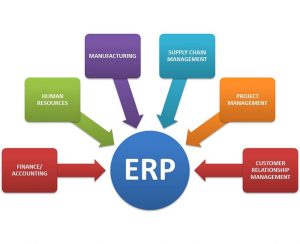Did you read about the new study that suggests, contrary to well-known clichés, that money can in fact buy happiness? The results show that when people spend money on things that align with their personality traits and values, their happiness appears to increase in correlation. It’s a fascinating hypothesis, but it has some major implications on companies’ hiring and retention strategies. In particular, we want to know if compensation is enough to retain top talent.
Why is Employee Retention Such a Big Deal?
We keep coming back to the topic of retention on a regular basis because we see how much of a challenge it has become in today’s current IT employment landscape. The BLS reports that average employer tenure is 4.6 years, with the Millennial average even lower at a span of 16 months to 3 years. This is in stark contrast to the quality of company loyalty that Baby Boomer employees have shown in previous decades.
This decreased employee tenure inevitably leads to increased turnover and reduced employee engagement. Unless you take proactive measures, it can be a downhill spiral. That’s why we’re convinced that retaining top tech talent is more important than hiring them. As such, we’re continually striving to gain insight on what makes a strong employee retention strategy.
Is Compensation Enough to Retain Top Talent?
Let’s be clear: money is important. There’s no way around that. People have bills to pay and standards of living to sustain. This means that to some extent, every employee is going to be somewhat money motivated. Compensation almost always comes first.
However, compensation by itself is never enough, especially for high performers. If you’ve ever quit a high paying job because of a toxic environment, lack of growth or a similar reason, then you understand this completely.
Your career and life goals, work preferences and personality traits all play an important part in what motivates you to stay with your current company. If any one of those is significantly out of sync with what your company delivers as an employer, you’re much more likely to leave when the opportunity arises, no matter how much they’re willing to boost your salary.
What Else Is Important?
So yes, compensation is enough to retain top talent, but definitely not by itself. A recent Harvard Business Review report suggests that career development and performance feedback are two key elements that are also essential in your employee retention strategy.
Career Development – Top performers are typically individuals who highly value lifelong learning and development. This is particularly true in the IT field, as it’s no secret that technology continues to evolve at an astounding pace, requiring further training and skills upkeep. Employers that offer advanced training opportunities, leadership development, and general career development are going to win major points in the eyes of their top IT employees.
Feedback – Feedback is also essential. If you limit this kind of communication to annual or semi-annual reviews, you may be missing out on an important opportunity. Top performers need to know their work is being recognized in addition to knowing how they’re fulfilling or exceeding expectations. Plus, they want to understand how they can optimize and improve their efforts to achieve even greater success. Regular feedback – on a monthly or even weekly basis – delivers this opportunity.
Appreciation – A strong employee appreciation strategy ensures that your employees are being recognized and rewarded for their efforts. Public or private recognition, employee perks and bonuses, and frequently verbalized gratitude for your employees are all tactics for keeping top performers engaged and happy.
Flexibility – Finally, high performing employees need an open road for achieving high results and doing what they do best. What does this mean? It means avoiding unnecessary, hard and fast rules regarding their workflow process that may prevent them from accomplishing their key responsibilities. It means banishing micromanagement and establishing focused priorities that allow these employees to leverage their skills and talents. Delivering this kind of flexibility is vital in sustaining employee engagement and retention.
Evaluating the Role of Compensation in Your Employee Retention Strategy
In conclusion, it’s clear that compensation plays a major role in employee retention. However, there are a number of supporting factors that depend upon your company and your employees.
First, be sure to do your market research so you can be competitive in your compensation packages. Then take the time to evaluate the motivations of your team’s top players, ensuring that your retention strategy aligns with their values and personalities. Money might be able to buy happiness, but so does working for a company that cares.
Need a hand recruiting those A Players? Let us know. We’d love to help.
Business & Finance Articles on Business 2 Community(31)






